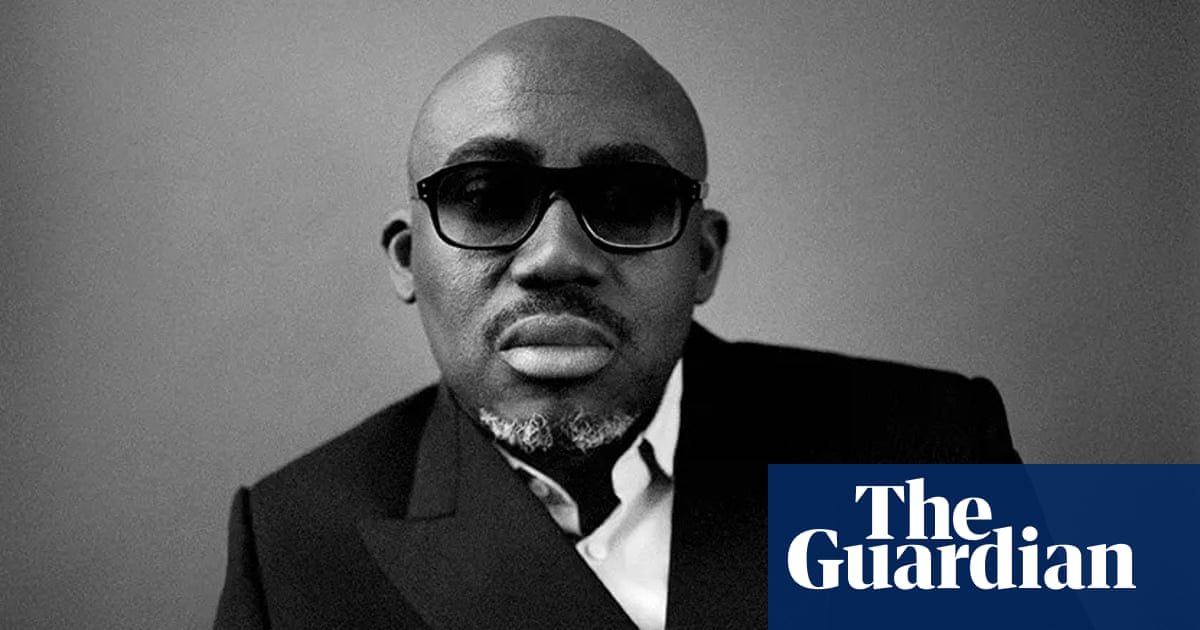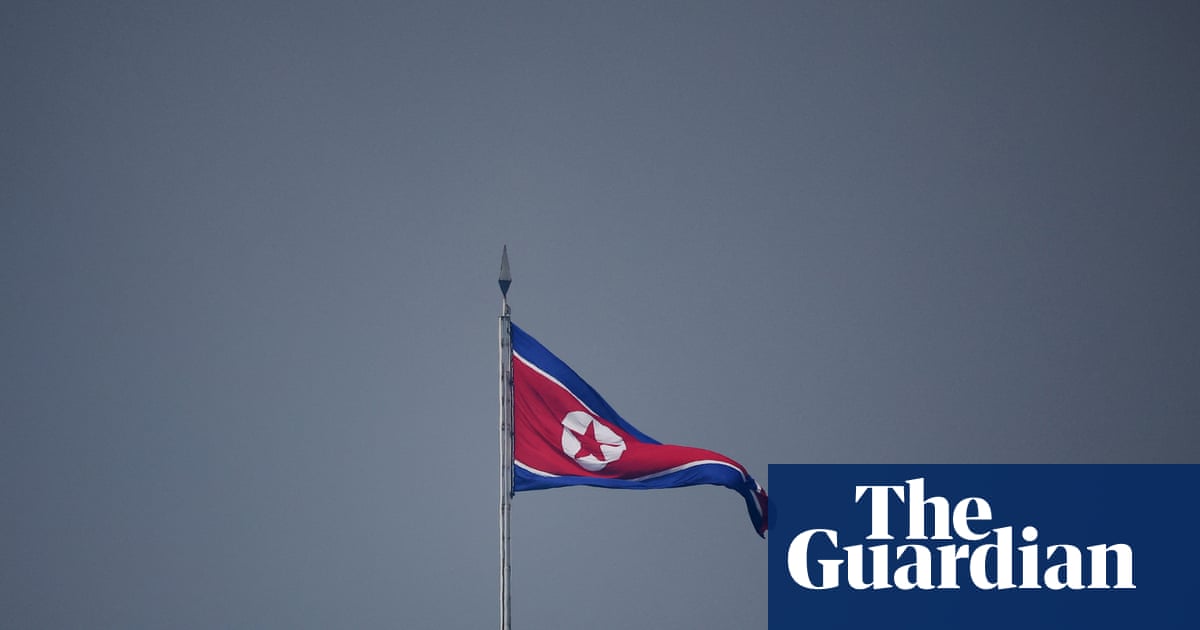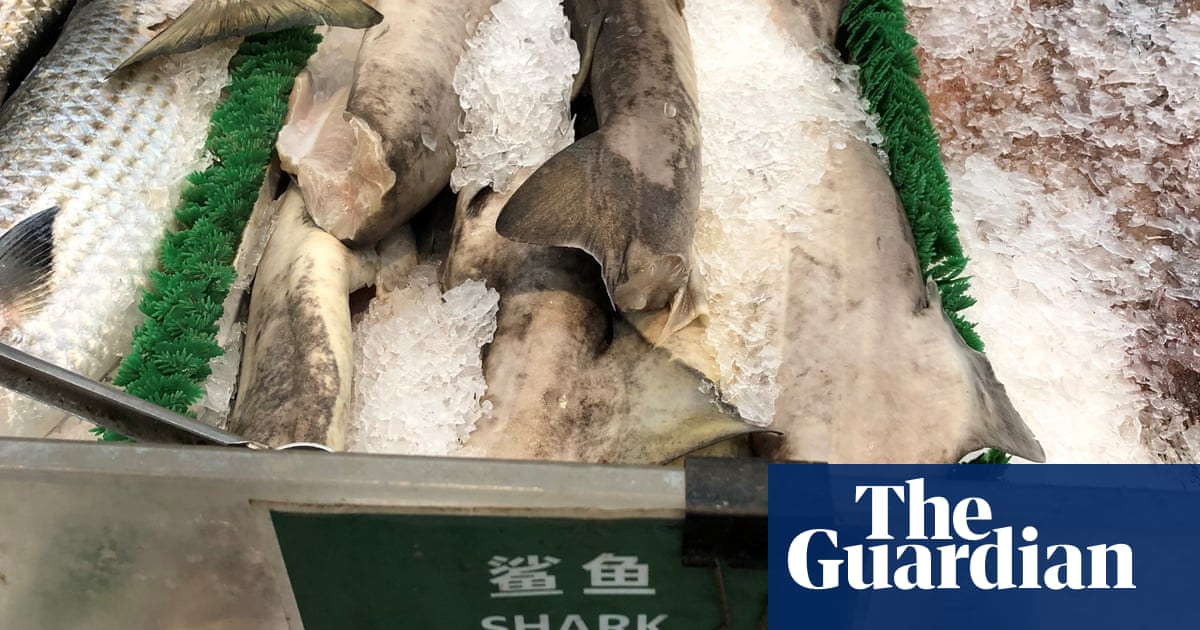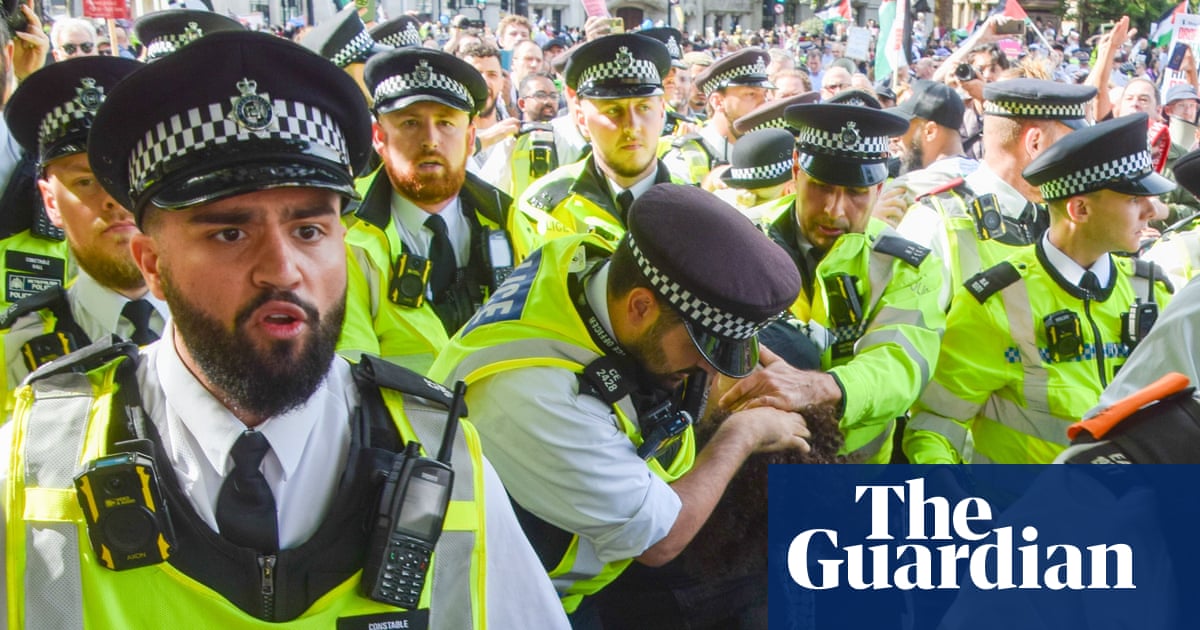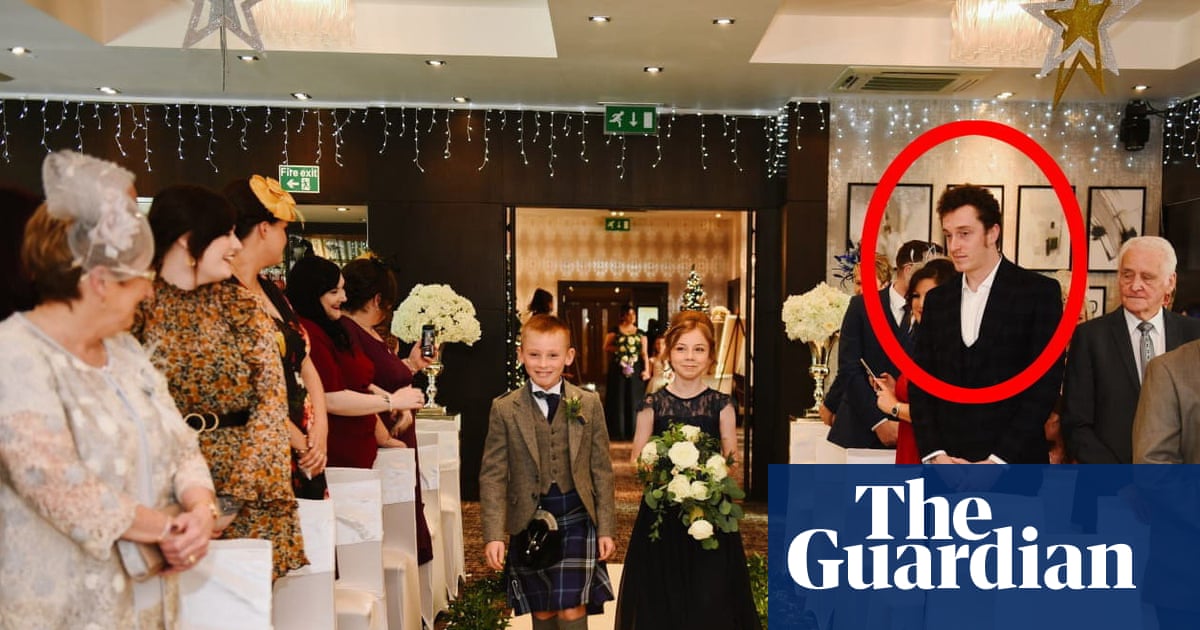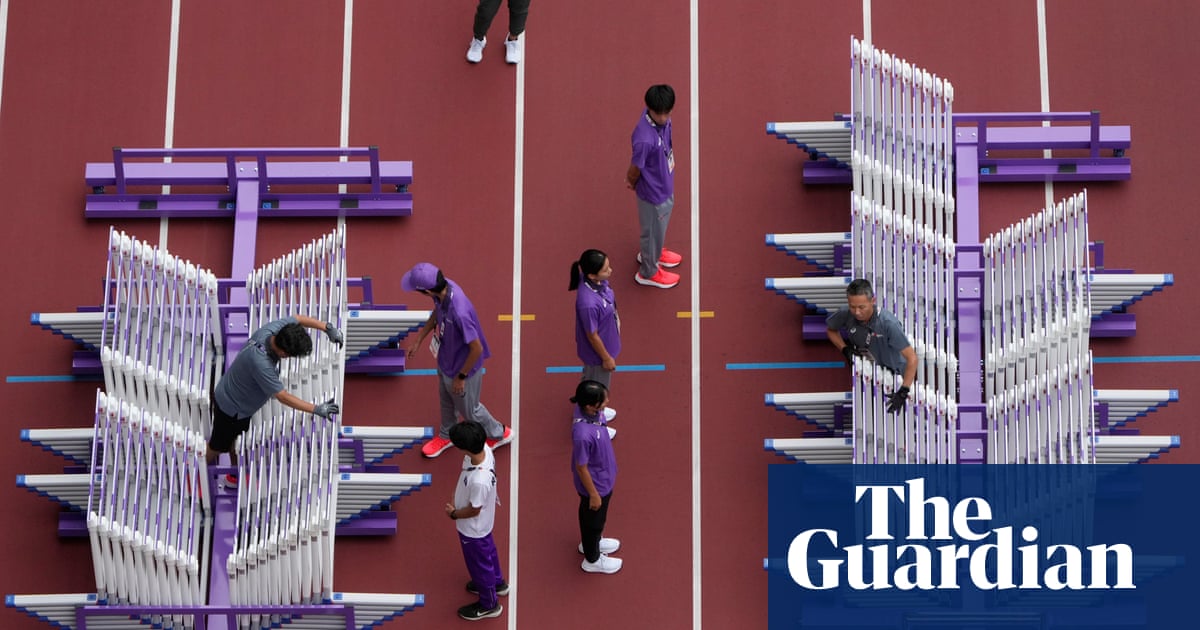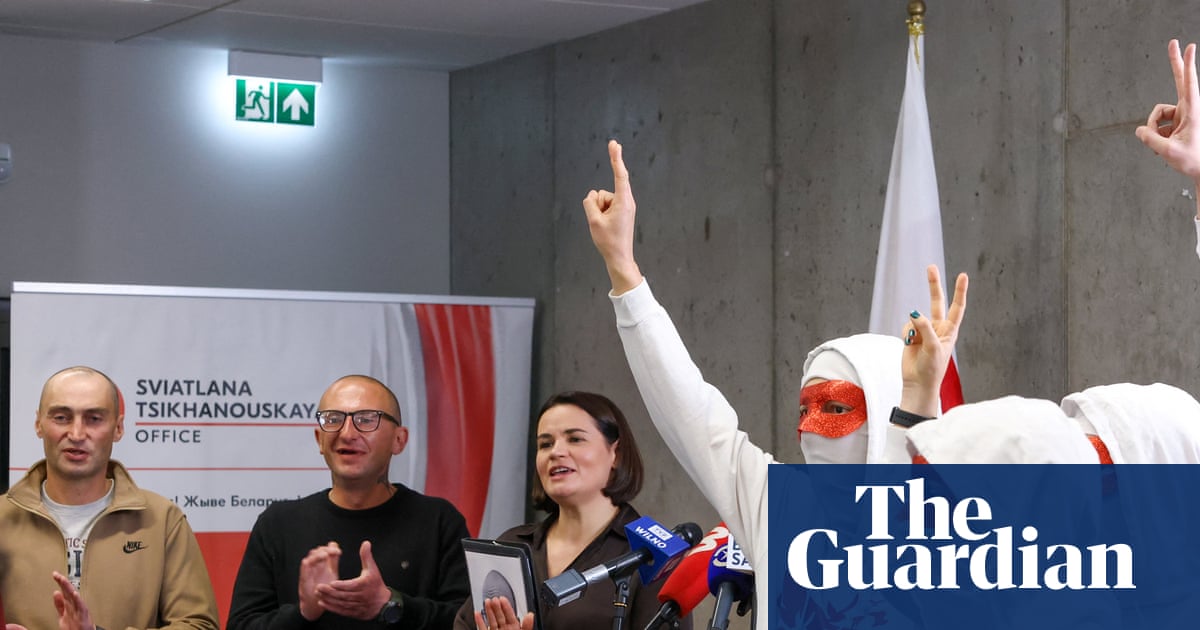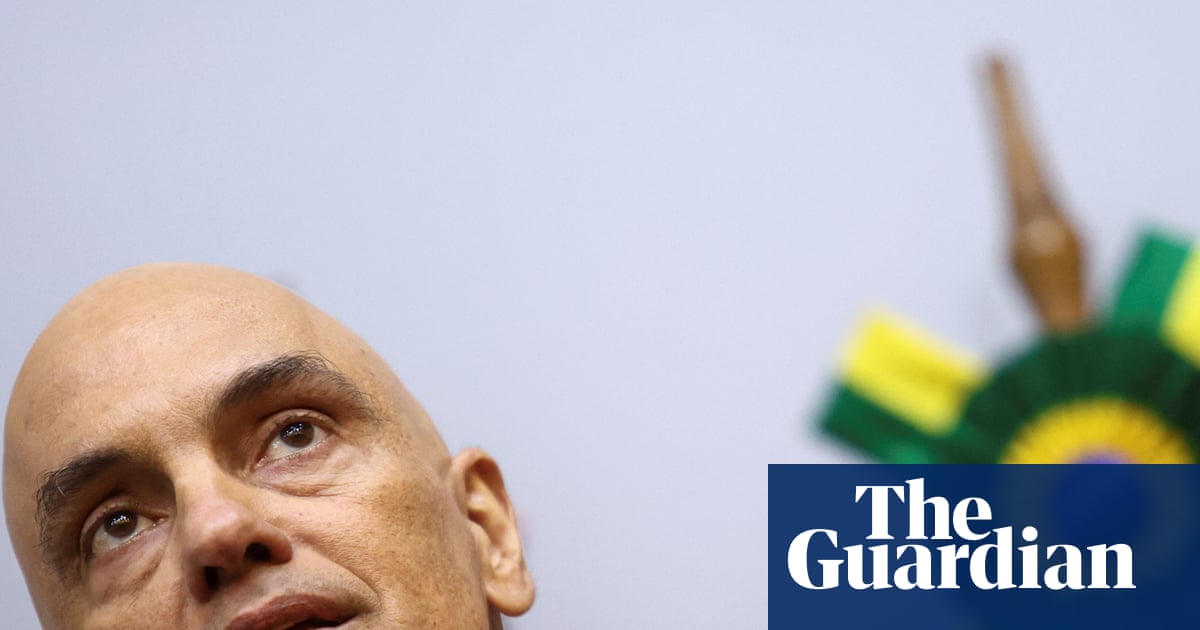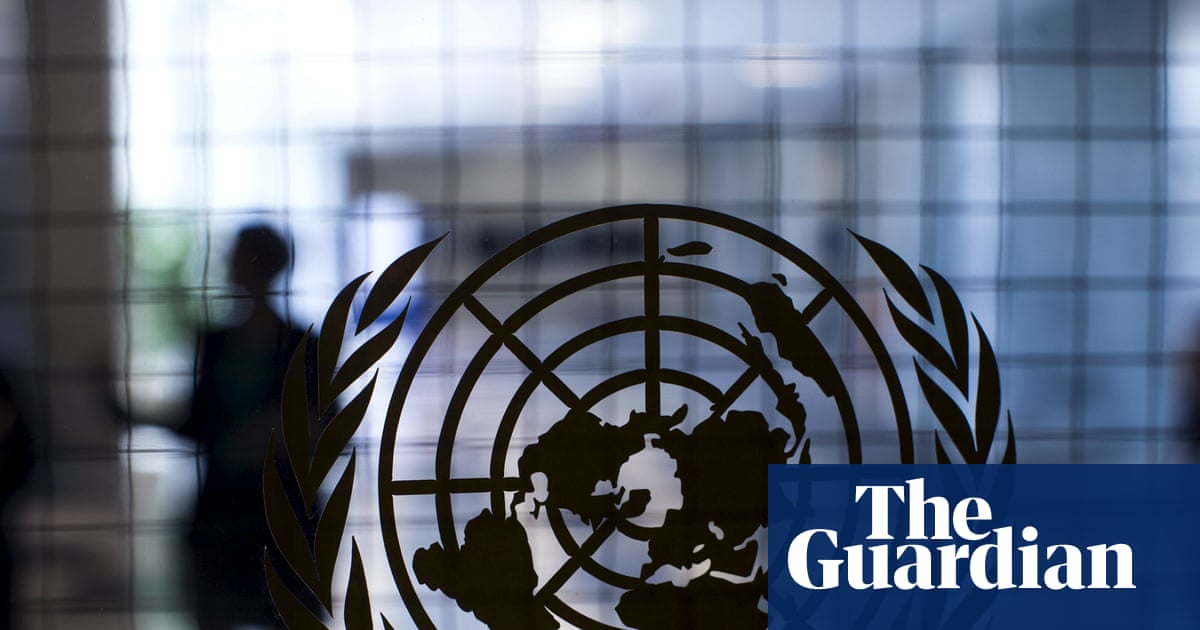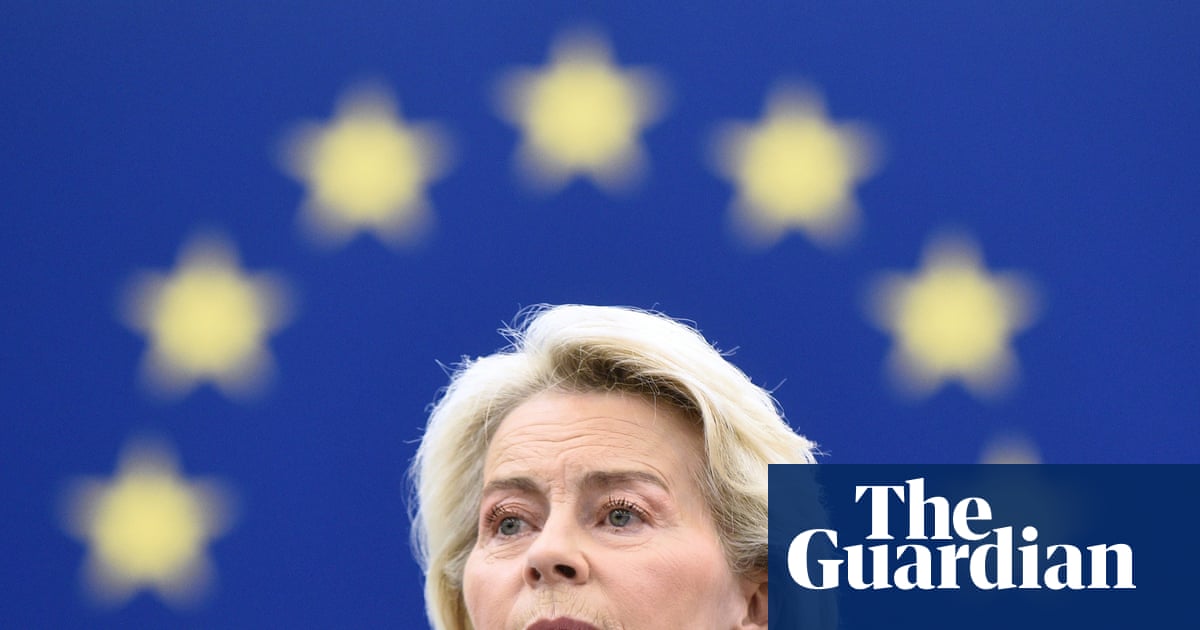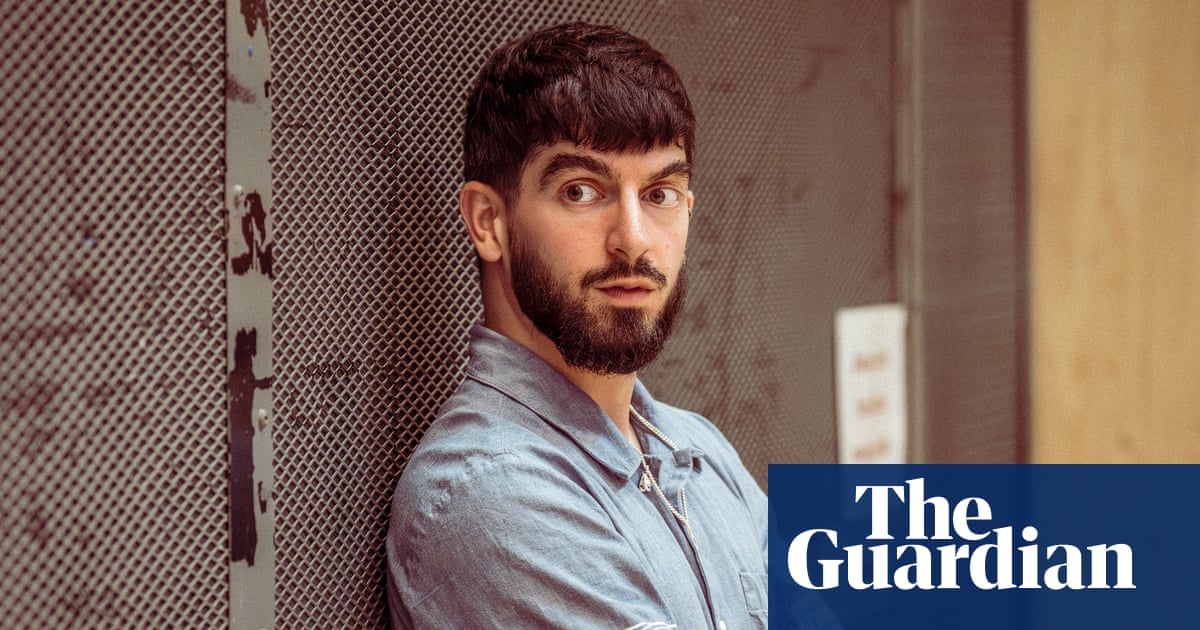The silence of the early hours was unbearable, perhaps worse than on any night since 7 October 2023. Bassem Abudagga paced around his flat in Manchester waiting desperately for an answer. He knew from a WhatsApp group of 800 relatives, set up by his extended family in Gaza, that houses near where his wife and two young children were holed up to the west of Khan Younis were being hit by Israeli missiles. His wife, Marim, was not picking up.
“Every single minute, I am with them 24 hours a day and night. When there is any risk, I keep in contact all the time with them online,” he says. “It depends on the connections, sometimes they are very bad. Even when I am sleeping I keep the notifications very loud and I keep just waking up when one goes off. When they are at risk they just text me. It is very exhausting because they feel that if I am in touch with them it is like a hope, they just hold it. I cannot sleep if there is a bombardment.”
On this occasion, a month ago, contact was lost. Abudagga, a lecturer in business studies from Al-Azhar University in Gaza who is on a British Council scholarship to the UK, tried making an international call to Mariam. But there was no response. “They were very, very hard moments,” he recalls. “Everyone texted me and asked: ‘Have you any information?’ And I said: ‘No information.’ These moments went on for five to 10 minutes – but it was so long. The first message I finally received was from my mum [who was also staying in the house]. It said: ‘We are all safe.’ It was a moment of pure relief.”
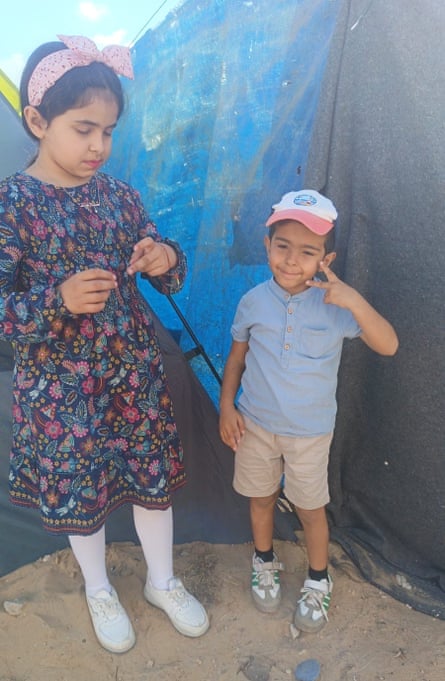
The couple’s five-year-old boy, Karim, had been unable to bear the sound of drones and left the bed in which they all had tried to sleep, crying. His nine-year-old sister, Talya, and Marim, without her phone, joined him and they had just hugged on the floor, terrified. The impact of the Israeli pounding shattered the windows but there was no direct strike on their building, just broken glass and dust everywhere. It was one of so many similar incidents. “They have survived on many such occasions, just by the mercy of God,” says Abudagga.
That they are still alive may at times feel like a miracle. But exactly why Marim, Talya and Karim remain in Gaza at all and have not been evacuated to be with their father is a question now facing the UK Foreign Office and Home Office. The British Council, which awarded Bassem Abudagga his three-year scholarship to the UK to do his PhD in business studies at York St John University back in 2022, is sponsored by the Foreign Office.
Under UK immigration rules Abudagga could have brought his family with him in 2022 but decided he could not afford to and that he would visit them when he could. He last saw them a few weeks before the deadly Hamas attacks of 7 October, during a trip back to Gaza. Abudagga being a foreign student studying and working here (he lectures part-time in Manchester to earn money), the government does not question their right to be re-united in the UK. But it seems to Abudagga that it is doing nothing to allow it to happen.
“The government could have done something,” says Abudagga. “I am entitled to have my family here and there are many British citizens who have been evacuated. I have all the papers in place.”
His case has been taken up by the Labour MPs for York Central, Rachael Maskell, and Salford, Rebecca Long-Bailey. The Observer first took up Abudagga’s case in March last year. The authorities responded by saying that Marim must get fingerprints in order to make an application for she and her children to be evacuated. But this is impossible as there is no facility left standing in Gaza to do so. Abudagga has asked that the demand for fingerprints be deferred until they have crossed the border into Egypt – if they could ever find a way to do so.
The Abudagga family’s suffering is one case among millions in Gaza, but it is unusual in being one for which the UK government bears a direct responsibility. Rachael Maskell said: “It is intensely frustrating when ministers are treating the case like any other, when Bassem was the only parent invited to join this UK study programme from a university in Gaza. These are exceptional circumstances for which the government must make an exception and stop hiding behind the bureaucracy which fails to support people in such desperate situations.”
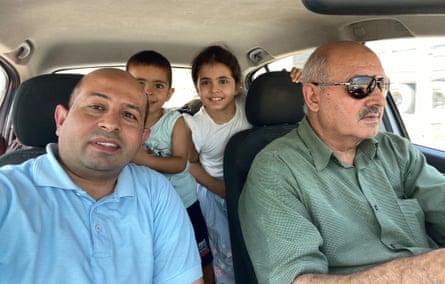
Marim, Talya and Karim are now living in a tent near the sea in Gaza in an area the Israelis say is safe. “Of course it is not safe at all,” Abudagga says. Since the war began more than 250 members of his wider family have lost their lives. Every time they are displaced their entire life is uprooted.
Two weeks ago, Abudagga sent a message to the MPs backing him and others who are trying to help, saying the situation was fast deteriorating. Of the children he said: “They are now in critical conditions: severely traumatised, living in constant fear of bombardment, and suffering from acute hunger and lack of access to basic needs. Their mother is doing everything in her power to care for them, but the burden has become crushing and unsustainable. We believe that facilitating the children’s evacuation – even without Marim for now – is essential not only to protect them, but also to ease her unbearable situation.” But nothing has changed.
Abudagga’s supervisor at York St John University, Dr Alexandra Dales, which is providing him with extra financial assistance from its hardship fund, cannot speak highly enough of her student. “It is a privilege to supervise Bassem. He has shown incredible fortitude during the conflict and has continued studying throughout. It has been incredibly distressing to witness the impact of the conflict on Bassem and his family.”
The British Council said it “has and will continue to urgently highlight Bassem’s case”. The Foreign Office said the case of the Abudagga family was a matter for the Home Office which in turn said: “Subject to meeting eligibility requirements, international students can bring dependents to the UK. The visa application centre in Gaza is currently closed; however, visa application centres are open and operating in Egypt and Jordan. It is longstanding government policy that we do not comment on individual cases.”

 3 months ago
40
3 months ago
40


